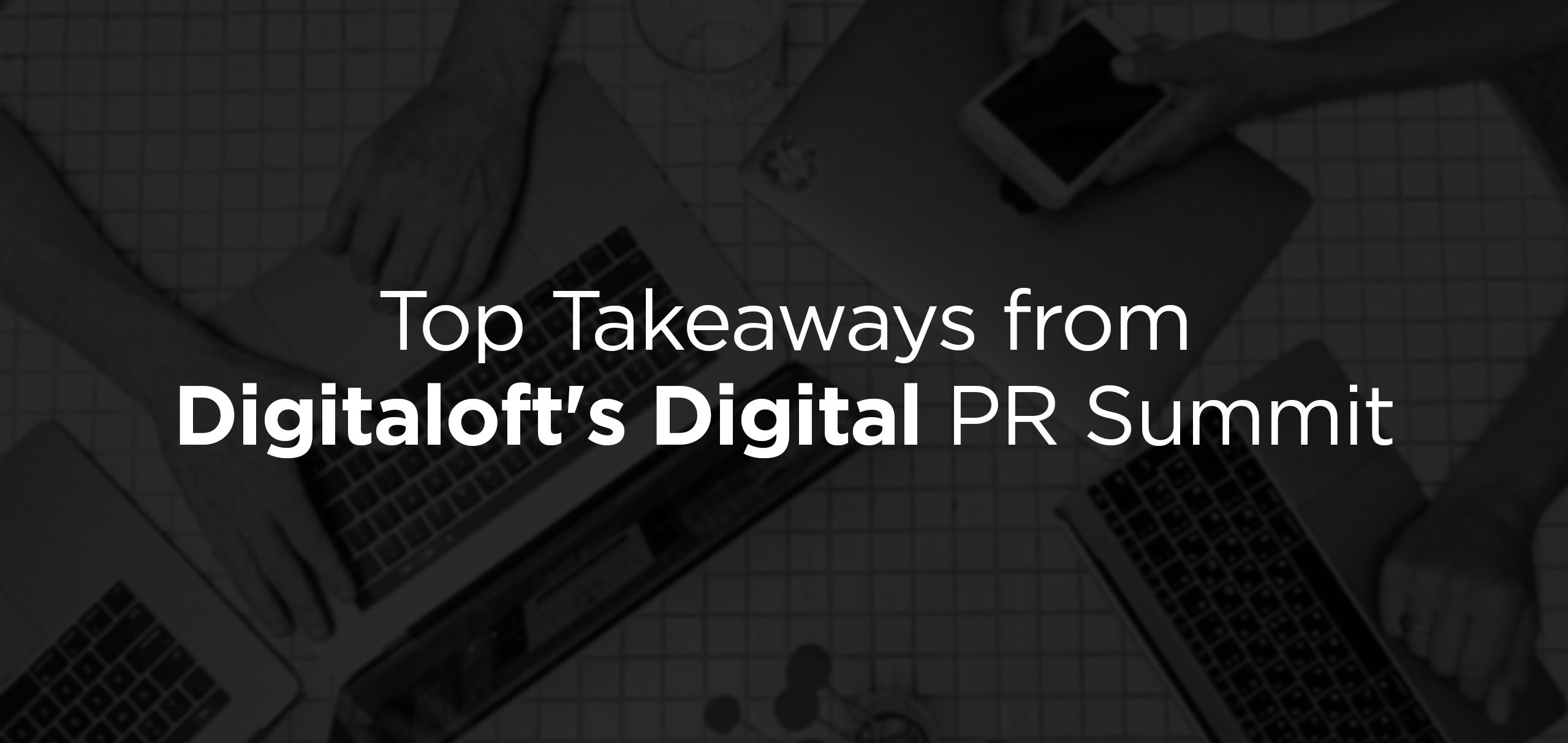3 min read
Honchō Scoops Up Two UK Search Awards!
It’s official, we've added not one, but two shiny trophies to our awards cabinet! We’re over the moon to share that we’ve triumphed at the UK Search...

Digitaloft’s Online Digital PR Summit took place on 29th September 2021. A free event, open to anyone from a traditional PR background transitioning into the world of Digital, those working in Digital PR wanting to learn more about their roles, or for those simply wanting to feel inspired.
With such a promising line-up and wide variety of talks, I chose to attend to pick up the top tips so that you can hear the best, from the best. These are the key takeaways from each talk!
“Why Every Digital PR Team Should Be Using Reddit” – Richard Paul (Propellernet)
When it comes to inspiration and execution for Digital PR teams, many first look to the likes of Twitter, Instagram, and Google Trends. In this talk, Richard Paul taught listeners to stop “sleeping on” Reddit and explained how you can use the platform to improve your process:
Here are a few great Reddit add-ons:
“Coverage, but at what cost? Being kind with Digital PR” – Abbi Connor (Builtvisible)
The phrase ‘Be Kind’ gained momentum in 2020 in response to Caroline Flack’s death. It’s a movement that continues to drive online conversation, and Abbi Connor spoke about how important it is for Digital PR professionals to take stock of the role our industry plays.
The talk focused on integrating ethical practices into your processes; from ideation, to research, to outreach and beyond:
“Creating a scrutiny-proof methodology for PR campaigns” – Katie Swann (Digitaloft)
In this talk, Katie taught the audience that if we really want our campaigns to perform well, they need to be able to stand up to scrutiny and have a strong methodology; giving us the ability to balance creative campaigns that stand out with both accuracy and integrity.
This lesson focused on making controversial campaigns work with a solid methodology, considering your conclusions carefully, and remembering that intention is everything:
Great Reputable Sources:
“Hacks to ideate, outreach and manage your time smartly in a fast-paced agency” – Marina Plummer (Kaizen)
As many of us know, life as a Digital PR can be busy. In this talk, Marina provided tips and tricks to make life easier and more productive, from coming up with ideas under pressure, to turning a new angle around in a matter of hours.
Here are the top tips I took away:
Brand Mentions vs Links: Making PR Coverage Work Harder for SEO – James Brockbank (Digitaloft)
James’ talk focused on the ever-changing landscape of the Digital PR world, and how what once may have gained hundreds of links may now only result in a few. After speaking to journalists about their thoughts on linking to external sources, here’s what we learned:
Create content that travels –Laura D’Amato (Verve Search)
With experience working in 10 different countries, Laura taught listeners all about what you need to do to create content that travels across the world.
Think translating a campaign in another language is enough? Think again! What you’ll need is a story that will translate and resonate with readers across the world.
There are 3 key elements needed to make a story travel:
How to set your PR strategy on fire – Beth Nunnington (Journey Further)
This talk was made up of actionable tips for you to implement into your PR strategy straight away, with a strong focus on what being ‘relevant’ really means to Google.
Three Main Steps to Driving Performance through PR:
Relevant, on-brand PR campaigns will make Google and your target audience happy. But, what do we mean by relevancy?
Why You Shouldn’t Sleep on Nofollow Links: The Hidden Value of the Nofollow Link – Kristin Tynski (Fractl)
Ever been excited about a link, only to find out that it’s a nofollow? We’ve all been there. However, in this talk Kristin walked the audience through a different way to think about nofollow links and the impact they have on SEO and content syndication:
The summit was a great online event which gave PR professionals a space to learn more, and enabled digital PR’s to share their favourite tips and tricks to help many other people in the industry launch successful, insightful, relevant campaigns.

3 min read
It’s official, we've added not one, but two shiny trophies to our awards cabinet! We’re over the moon to share that we’ve triumphed at the UK Search...

5 min read
Understand ecommerce attribution models which attribution models can maximise your marketing efforts and ROI.

3 min read
Explore how social commerce is changing the way we shop online, blending social interactions with digital commerce for a seamless buying experience.